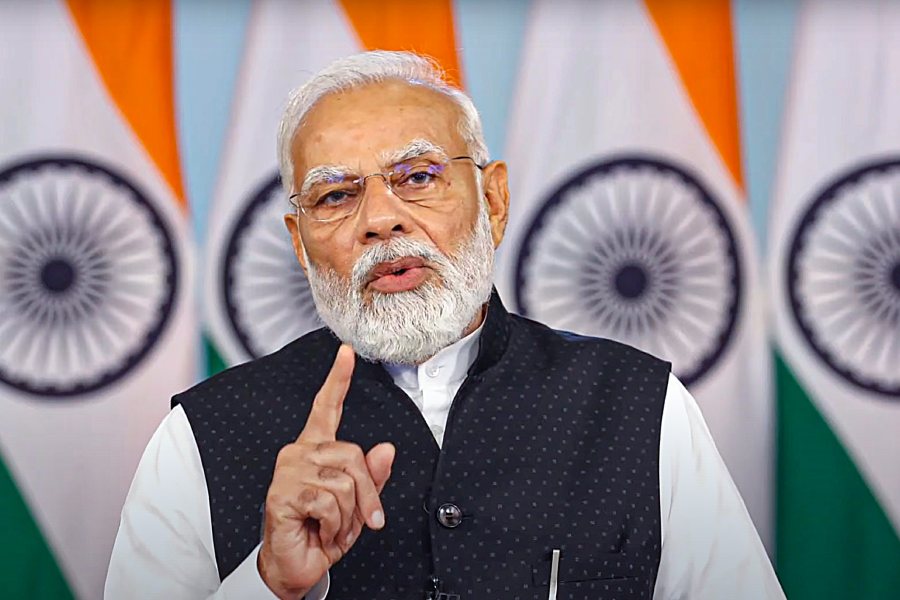While addressing a rally, the prime minister, Narendra Modi, had remarked that some people have given a supari to dent his image. In a public speech, the chief minister of Haryana, M.L. Khattar, stated, “Wo hal ho jaayegi, chinta mat karo. Ek judge hai. Uske maathe mein kuchh gadbad hai. Theek karenge usko (Do not worry, that issue will be resolved. There is one judge who has a problem. We will fix him).” Addressing a rally in Bihar, the Union home minister remarked that rioters will be hanged upside down.
These remarks, among many others, raise a question concerning the impropriety of the language of the bearers of constitutional office. Political scientists believe that language and politics share a relationship, while scholars of comparative politics argue that dignified public expression is a way of ensuring accountability from politicians beyond electoral and institutional accountability.
Opinions in the mind are private. But they become public once words are used to express them. Therefore, the use of words by individuals, especially politicians, demands additional caution. Dignified political expression not only creates a bond between citizens and public officials but also raises the standard of public discourse. The expectations of citizens from holders of constitutional office are higher.
The idea of the responsibility of office holders is referred to by Cass R. Sunstein in the book, Constitutional Personae. Sunstein writes, “Our imaginations, moral and otherwise, are populated by identifiable types of people. Whether it is the subject of law, sports, politics or friendships, human beings are subjected to particular types.” Politicians, actors, and the socially idealised individuals are identifiable types of people; they are revered and find a place in the daily lives of the commoners in different ways. Therefore, a natural and cautious duty lies on them to use a language that promotes the constitutional principles and encourages the citizens to be linguistically rich.
India’s public and political discourse is not only linguistically rich but also has intellectual depth. The fall in the standards of public oratory is deplorable. But India is not the only country to have witnessed a decline in the quality of public discourse. Mature democracies like the United States of America have also experienced the lack of mutual respect in political conversations. In fact, the deteriorating standards of political conversation in the US compelled Tami Pyfer, a former teacher and high-level Republican appointee, to develop a dignity index. The index measures the decency of the words used by the politicians during political conversations and speeches and it also scores the meanness or grace of the leaders.
Public discourse lies at the heart of democratic governance. The everyday interactions of the government, political functionaries and constitutional office holders are necessary for the functioning of a deliberative democracy. The unfortunate decline in mutual respect and dignity in the political discourse requires deep and serious introspection from politicians for them to be revived.
A reading of the political speeches of some of India’s tallest leaders, including Jawaharlal Nehru, Rammanohar Lohia, Jayaprakash Narayan, C.N. Annadurai, Atal Bihari Vajpayee, among others, would show that propriety has been central to India’s political history. The public discourse of modern India requires the inculcation of values and rational deliberation in the community.
Nehru believed that the moral life sustained private life and also political life. Nehru’s reasoning should be the guiding path for India to restore dignity in the public discourse.











